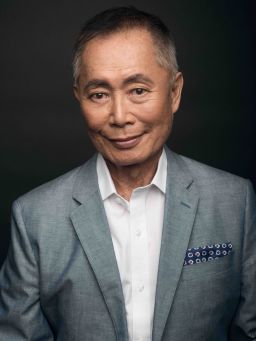Editor’s Note: George Takei is an actor and activist. His Broadway show “Allegiance” screens across cinemas in the United States on the Day of Remembrance, February 19. Follow him on Twitter @GeorgeTakei. The opinions expressed in this commentary are solely those of the author.
Story highlights
George Takei recalls his family being taken by soldiers from their home in LA and forced to live in an internment camp in 1942
This week marks 75th anniversary of FDR executive order that allowed this discrimination against Japanese-Americans, he says
Takei: As Trump crafts orders to single out Muslims and immigrants, Americans must not stand for this echo from the past
I was just a child of 5 when soldiers marched up our driveway in a Los Angeles residential neighborhood, bayonets in hand, and pounded on our front door, ordering us out. We were permitted only what we could carry, no bedding, no pets.
I remember my mother’s tears as she and our father gathered us up, with our precious few belongings in hand. She was determined to bring a sewing machine, fearful that we would need to make or mend clothes where we were headed. She wasn’t sure the authorities would allow her to take that Singer machine, so she kept it a secret, even from us. She managed, however, to pack a few treats for us children for the long journey ahead.

That was in 1942. Earlier that year, on February 19, 75 years ago yesterday, President Franklin D. Roosevelt issued an executive order, No. 9066, which set the internment into motion. On its face, the order was “neutral,” authorizing the military to designate whole swaths of land as military zones, and evacuate any persons from it as they saw fit.
But behind that facade lay a much darker purpose: to tear 120,000 innocent Japanese-Americans from their homes along the West Coast and relocate them to 10 prison camps scattered throughout the United States.
It didn’t matter, back then, that most of us were US citizens and had never even been to Japan. We were presumed guilty, and held without charge for four years, simply because we happened to look like the people who had bombed Pearl Harbor. For that crime, we lost our homes, our livelihoods and our freedoms.
Every year, on February 19, we Japanese-Americans honor this day as Remembrance Day, and we renew our pledge to make sure what happened to us never happens again in America. I am always amazed, and saddened, that despite our decadeslong efforts, so many young people today are not even aware that such a tragedy and miscarriage of justice took place here.
Portraits from 'a great injustice'
And I grow increasingly concerned that we are careening toward a future where such a thing would again be possible.
A few months into his campaign, Donald Trump refused to outright reject the policies and fears that underlay the internment. Instead, he suggested that it was a tough call, and that he “would have had to be there” in order to know whether it was the wrong one.
Trump ignored the inconvenient fact that not a single case of espionage or sabotage was ever proven against any internee, and that the military itself admitted that there was never any evidence to support their sweeping policy. A few months later, a top Trump surrogate went on television and suggested that the internment might actually serve as a “precedent” for another Trump policy – the registration of Muslim-Americans in a database.
I cannot help but hear in these words terrible echoes from the past. The internment happened because of three things: fear, prejudice and a failure of political leadership. When the administration targets groups today, whether for exclusion from travel here on the basis of religion and national origin, or for deportation based on their undocumented status, I know from personal experience that these are not done, as they claim, truly in the name of national security.
No, instead they are intended to strike fear into communities, to show the muscle and “toughness” of a new president, and to divide the citizenry against itself. These are the acts of a despot, not an elected leader.
I have dedicated my life to standing against our nation’s impulse toward demagoguery and tyranny by the whipped-up masses. The answer lies not just in education, but in empathy. The false narrative – that there are those who belong here and those who do not – is designed precisely to divorce us from the truth that we are all here and in this together.
We are an interdependent people, sharing a common bond of humanity. The most pernicious aspect of Trump’s policies is thus the denial of those basic bonds and that humanity. I will not stand for it, and no people of good conscience should.
The question before us, then, on Remembrance Day is a simple one: Will America remember? The internment is not a “precedent,” it is a stark and painful lesson. We will only learn from the past if we know, understand and remember it. For if we fail, we most assuredly are doomed to repeat it.






























